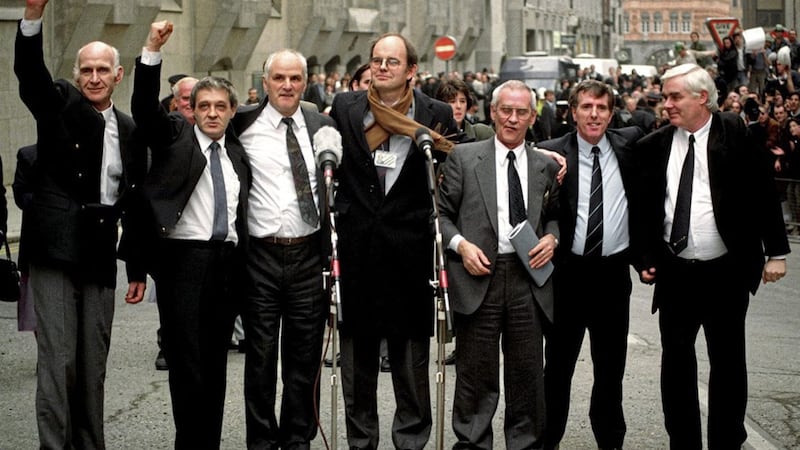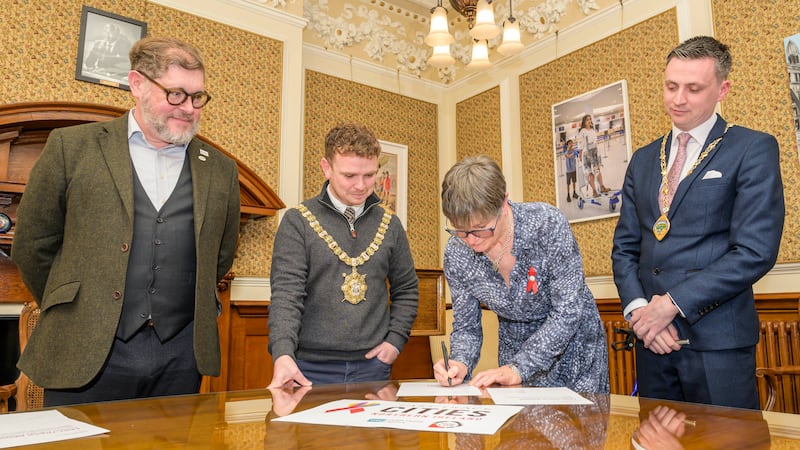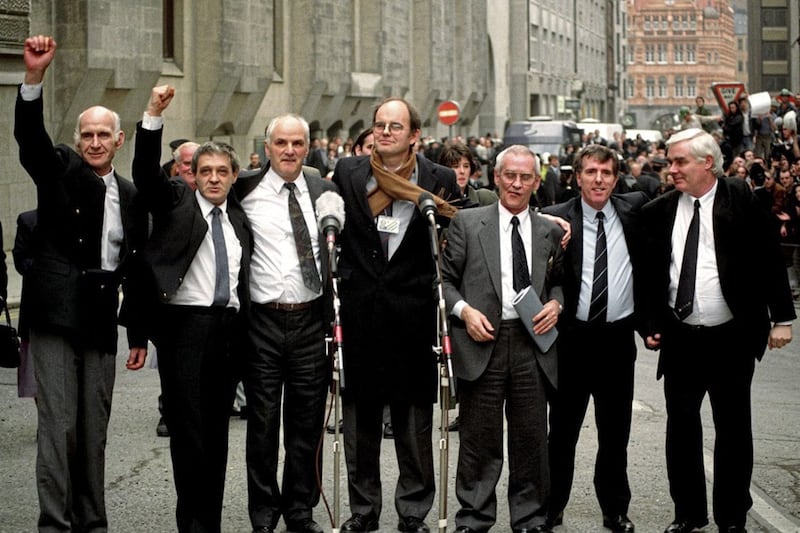A journalist who campaigned for the Birmingham Six has marked the thirtieth anniversary of their release.
Chris Mullin, who became a Labour MP in 1987, yesterday tweeted a photo of himself with John Walker from Derry, Belfast-born Paddy Hill, Hugh Callaghan, Richard McIlkenny, Gerry Hunter and William Power shortly after their release in 1991.
"On this day 30 years ago the Birmingham Six were released," he wrote.
Twenty-one people were killed and 182 injured when IRA bombs exploded in two pubs in Birmingham city centre on November 21 1974.
A West Midlands Police inquiry in the immediate aftermath of the bombings led to the wrongful convictions of the Birmingham Six, one of the worst miscarriages of justice in British legal history.
Mr Mullins played a key role in securing the release of the Birmingham Six.
In 1985, the first of several World in Action documentaries about the case were broadcast. The following year, Mr Mullins' book, Error of Judgment: The Truth About the Birmingham Pub Bombings, outlined the men's innocence.
The six men were released after 16 years when their convictions were overturned by the Court of Appeal on March 14 1991.
They were later awarded compensation ranging from £840,000 to £1.2 million.
At an inquest into the bombings in 2019, a jury concluded an inadequate IRA warning call on the night led to 21 people being unlawfully killed.








